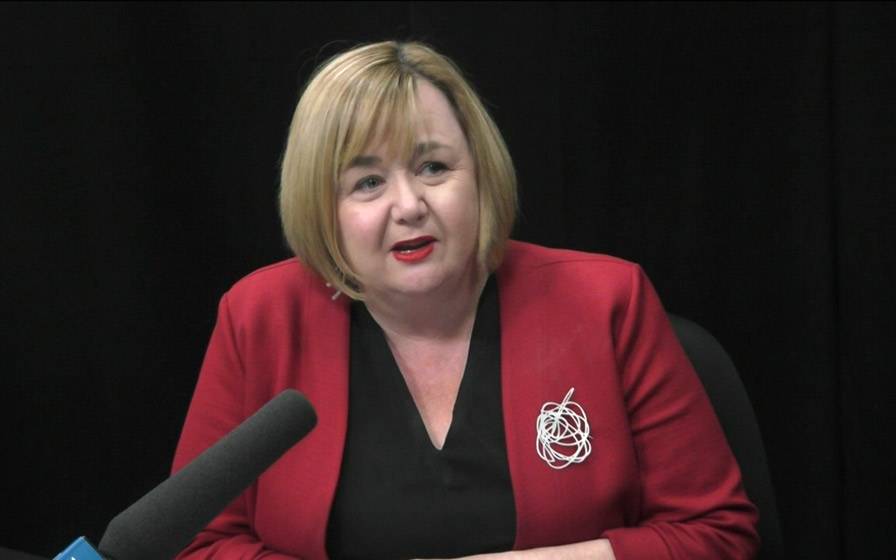

Immigration, MIQ criticism, dumping policies and retiring MPs
ANALYSIS: The Government was subject to a number of critical reports this week.
NBR political editor Brent Edwards speaks with Grant Walker.


ANALYSIS: The Government was subject to a number of critical reports this week.
NBR political editor Brent Edwards speaks with Grant Walker.
It might have taken some time but this week the Government finally eased immigration settings further to help deal with skills shortages in the labour market.
The one decision that excited most political comment was giving nurses, specialist doctors and midwives immediate access to residency. They were already on the green list but had to work here for two years before getting residency.
Critics said that requirement was an obstacle to getting nurses into the country.
NBR presenter Grant Walker asks, as many others have, why it took the Government so long to remove the two-year residency rule for nurses, when the country’s hospitals have been struggling to recruit enough to staff wards.
Prime Minister Jacinda Ardern rejected criticism the Government had been too slow to act, pointing out that since the Covid-19 pandemic began 3,474 nurses had arrived in the country. But in the same breath she said it was clear more had to be done to encourage nurses to choose New Zealand as their destination.
“There is a global shortage [of nurses]. Let’s get in front of things and be as competitive as possible,” Ardern told her post-Cabinet news conference.
But nurses and other health professionals were not the only ones to benefit from a more permissive immigration setting.
Prime Minister Jacinda Ardern.
At the announcement Immigration Minister Michael Wood, who Walker describes as looking almost prime ministerial, also unveiled a host of other occupations where the Government is making immigration rules easier.
Its expansion of the direct pathway to residency includes, for example, all teachers, drainlayers, mechanics and civil machine operators. It also extended to bus and truck drivers a time-limited two-year pathway to residency.
“Overall, with the suite of measures announced today, alongside the likes of the Skilled Migrant Category and Accredited Employer Work Visa, I am confident Aotearoa New Zealand has the settings it needs to access skilled labour, support migrants and help us through the challenging year ahead,” Wood said.
While the Government is now opening the doors to migrants it still faces criticism for the way it managed the border during the pandemic.
A report from Chief Ombudsman Peter Boshier rebuked the Ministry of Business, Innovation and Employment over its use of the managed isolation system in allocating places to New Zealanders wanting to return home.
“We ended up with a lottery – a system that did not fully allow for consideration and prioritisation of individual circumstances of people trying to come home during the Covid-19 pandemic,” Boshier.
He suggested MBIE apologise to individuals negatively affected by its use of the system..jpeg)
The Government got criticised for the way it ran MIQ.
Reporters asked Ardern whether she would apologise. While she acknowledged there had been problems with the system she said the Government had been trying to save lives.
Another report – this one from Auditor-General John Ryan – also criticised the response to the pandemic and said government agencies had to act to improve their readiness for future emergencies and crises.
Ryan said public servants worked extraordinary hours in extraordinary circumstances, but the country could not just rely on good people.
“New Zealand could and should have been better prepared for Covid-19,” he said.
If that was not enough the Human Rights Commission has also found that emergency housing – much of which is in motels – breaches the humans rights of those having to use it.
The report found emergency housing was not often clear, dry, safe, secure or in good repair. As well, people were often evicted into homelessness.
The same week, Housing Minister Megan Woods announced the Government was introducing quality standards for suppliers of emergency housing, expanding support services to people using it, helping people get into and stay in private rentals, investing in initiatives to provide other options for Māori and investigating other options to emergency housing for Wellington and Hamilton.
Woods said added 10,700 state houses to the public stock but emergency housing would still be needed until all the houses needed were built.
Housing Minister Megan Woods.
“Emergency housing was introduced in 2016 but was not designed to be a long-term option. So it’s time to reset the system and improve how people enter emergency housing, how they are supported while they are there, ensure they have good quality accommodation and increase support to help them exit,” she said.
The Government is also looking to exit some of its contentious policies, with Ardern asking her ministers to review their policy programmes over the summer break and come back to Parliament next year ready to dump stuff that is not necessary.
Or, as Walker says, dump anything that will not look good in election year.
Probably, but why would any government force through unpopular policy in election year if it were not truly committed to it.
Ardern says she wants the Government to have a focus on the economy and helping households through tough times next year.
That message was given extra impetus when the Treasury joined the growing list of economic forecasters expecting a recession. In its half-year economic and fiscal update, it predicted three quarters of negative growth next year, with the economy contracting by 0.8% across the whole year.
The Treasury is forecasting a mild recession next year.
It also forecast, though, that the economy would grow 1.8% in the second half of this year. The next day the GDP figures for the three months to the end of September revealed the economy had grown by 2% in that quarter alone.
Irrespective of that it seems clear the economy will struggle next year as economic activity in New Zealand’s main trading partners slow and interest rates here rise as the Reserve Bank responds to inflationary pressures.
It will make it not just a difficult year economically, but also politically for the Government as it faces the election at the end of 2023.
That might have sparked a few retirements, with ministers Poto Williams, Aupito William Sio and David Clark all announcing they will stand down from politics at the next election. So too will backbench MPs Paul Eagle, Marja Lubeck and Jamie Strange.
All three backbenchers have only been in Parliament since 2017 so are bowing out early. In Eagle’s case it comes after his ill-fated Wellington mayoralty campaign ended in failure.
As for the ministers, none are lifers, with Sio the longest serving, having been first elected in 2008. Clark was elected in 2011 and Williams in the Christchurch East by-election in 2013.
None of the resignations are shocks and leaves Ardern with a bit more wriggle room when she reshuffles her Cabinet early next year.
She will be hoping that the reshuffle and the paring back of policy initiatives will give the Government new impetus in election year.
Brent Edwards is NBR’s political editor.
Sign up to get the latest stories and insights delivered to your inbox – free, every day.